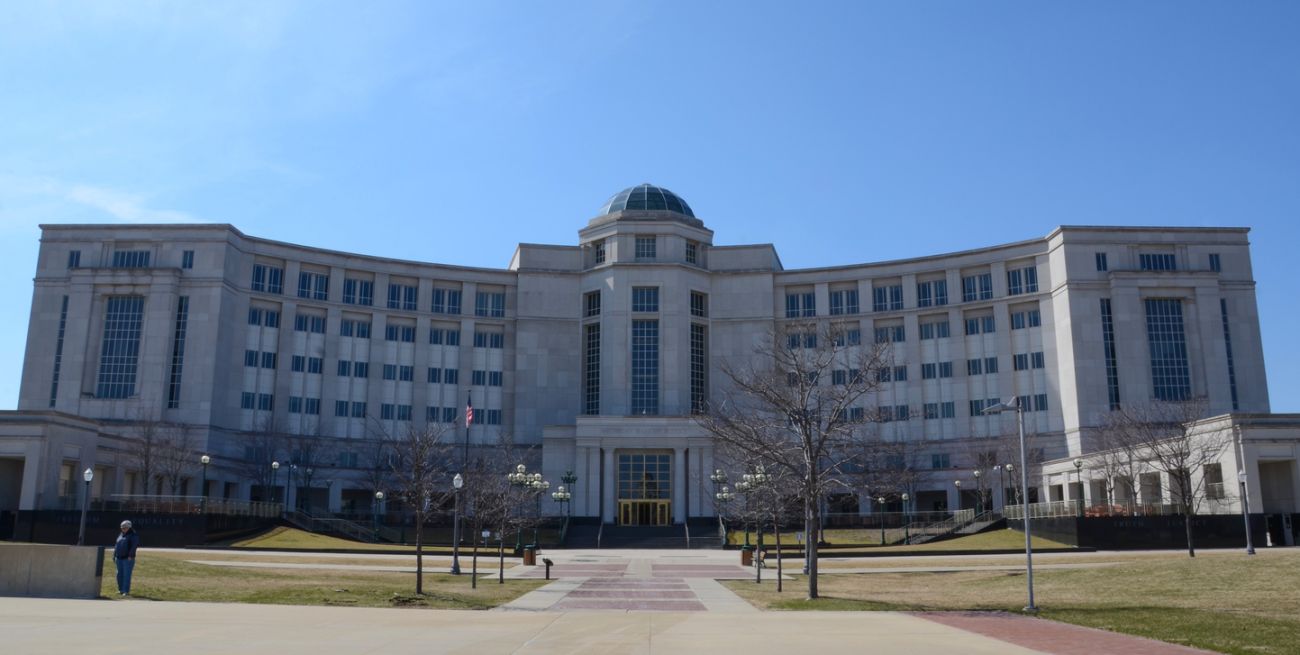Michigan high court weighs case that would raise minimum wage for 305K workers

- Supreme Court justices consider whether lawmakers erred by adopting, then amending proposals for a minimum wage hike and increased paid sick leave
- If justices side with initiative organizers, Michigan’s minimum wage could increase to more than $13 an hour, minimum tipped wage would rise from $3.84 to $11.73
- Workers divided on whether the change would help or hurt
Michigan Supreme Court justices heard arguments on Thursday in a case that could expand paid sick leave and increase the minimum wage for about 305,000 workers.
Justices are weighing a challenge to the Republican-led Legislature’s decision in 2018 to adopt a ballot measure to increase wages and sick time benefits before voters had a chance to weigh in on the measure, then quickly water them down.
Supporters of the original proposals argue the Legislature’s actions weren’t legal and the laws they passed should be overturned.
“For … 105 years the people of Michigan have enjoyed the constitutional right to initiate laws, in 2018 the Michigan Legislature usurped that right,” said Mark Brewer, an attorney representing initiative organizers.
Related:
- Michigan $15 minimum wage ballot petition blocked, setting up court fight
- Michigan restaurants: Raising minimum wage would doom us. Others dubious
- Michigan Democrats want cities to decide how much private employers pay
If they prevail, Michigan’s minimum wage would increase to $13.03 an hour from $10.10, while it would jump to $11.73 from $3.84 for tipped workers. About 7 percent of the state’s workforce makes minimum wage.
Business groups and some restaurant workers claim such a change could decimate the food service industry that is still recovering from the pandemic. Attorneys for the Legislature argue the “adopt and amend” strategy isn’t prohibited in the Constitution and is therefore legal.
“The Constitution is unambiguous that it does not limit the Legislature’s authority to adopt an initiative and amend it within the same legislative session,” Deputy Solicitor General Eric Restuccia told the court.
Here’s a look at what the justices are considering and the potential ramifications for Michigan workers.
What happened
Organizers in 2018 initially sought to bump Michigan’s minimum wage up to $12 an hour by 2022 and after that tie the state minimum wage to inflation.
A separate 2018 proposal would have required Michigan employers to allow employees to accrue paid sick time, up to 40 hours annually for small businesses and up to 72 hours per year for larger employers.
Both citizen-led initiatives were proposed changes to state law, meaning the Legislature had first dibs to vote on the proposals before they appeared on ballots statewide.
Amid pressure from business groups and the restaurant industry, the Republican-majority Legislature opted to pass both initiatives, then quickly approve changes that significantly pared down the plans.
Lawmakers extended the timeline for increasing the minimum wage above $12 to 2030 and kept the lower tipped minimum wage in place.
Legislative amendments to the paid sick time policy capped accrual at 40 hours and exempted businesses with fewer than 50 employees from the changes.
The legal battle
The question before the Michigan Supreme Court is whether lawmakers were legally allowed to pass the proposals into law and immediately make alterations.
So far, courts have been split on the issue. In 2022, a Court of Claims judge found the Legislature violated the Michigan Constitution — an opinion that was overturned months later by Court of Appeals judges, who found that because there’s no constitutional language explicitly barring the practice, lawmakers were within their legal rights.
The possible major increase to the minimum tipped wage has restaurant industry groups and some tipped workers fearful for their livelihoods.
Ashley Greco, a Macomb County restaurant worker, told Bridge Michigan this week that the increased minimum wage for tipped workers wouldn’t make up for the “huge pay cut” of losing tips and possible reduced shifts or job loss if their employers can’t afford to pay.
“The majority of the people working in the service industry do not want that to change — what we have right now works,” she said. “Even if you’re making more an hour at the baseline, it would still impact your ability to go well above that with tipping.”
Others counter that many restaurant workers aren’t able to make ends meet even with the prospect of tips because of sub-minimum wages, and would benefit from an overall increase.
“I have seen all the challenges and systemic issues that restaurant workers face each day — and most of these are directly related to low pay. In fact, I have lived through it,” Crystal Coleman, a restaurant worker in Detroit, said in a statement, calling past jobs in the service industry “almost a hand-to-mouth existence.”
See what new members are saying about why they donated to Bridge Michigan:
- “In order for this information to be accurate and unbiased it must be underwritten by its readers, not by special interests.” - Larry S.
- “Not many other media sources report on the topics Bridge does.” - Susan B.
- “Your journalism is outstanding and rare these days.” - Mark S.
If you want to ensure the future of nonpartisan, nonprofit Michigan journalism, please become a member today. You, too, will be asked why you donated and maybe we'll feature your quote next time!




